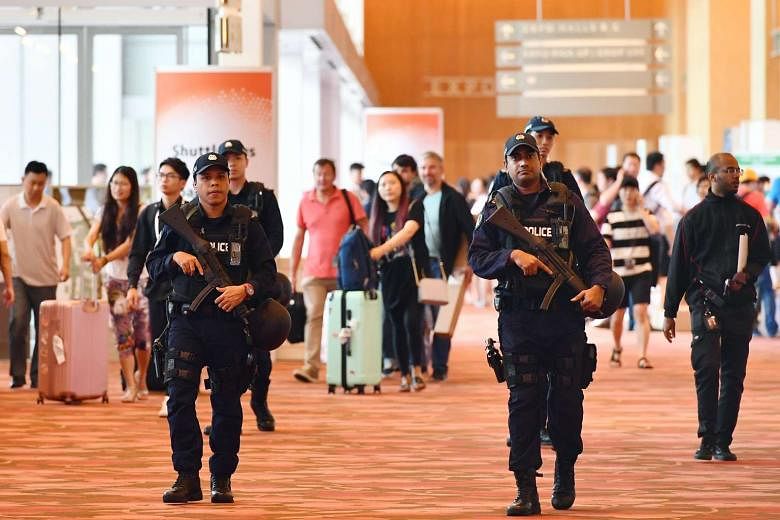The greatest terror concern facing Singapore is an attack from radicalised individuals within the country, the Ministry of Home Affairs (MHA) said yesterday.
The ministry flagged this yesterday in its report, and assessed this form of terror threat as the top concern - over an attack by an organised terror network or cell, or regional terrorist elements.
Individuals who pose this threat would have been "galvanised by the Islamic State in Iraq and Syria's relentless exhortation" to take things into their own hands.
They could carry out attacks that are hard to prevent, and may happen quickly, without warning.
"The perpetrators do not need sophisticated weapons and can turn instead to everyday items for weapons, like cars and knives," said MHA.
This is where the community can play a part - in detecting and reporting radicalised individuals to the authorities. MHA said that family and friends of such people are often the first to notice "tell- tale behavioural changes", and are best-placed to counsel self-radicalised individuals, or alert the authorities if they cannot rein in their loved ones.
Yet, MHA also noted that in some cases of self-radicalisation, friends and family have withheld information from the authorities either out of a sense of denial of the problem, or a misguided belief in wanting to protect their loved ones.
In the Manchester Arena suicide bombing last month that killed 22 people, friends and family of the bomber had detected signs of growing religiosity and extremism in him. The Guardian reported that on at least four occasions, community leaders and family members had warned the authorities of his "dangerous tendencies", even though these warnings were dismissed or overlooked.
Mr Jasminder Singh, a senior analyst at the International Centre for Political Violence and Terrorism Research, said family intervention in such cases is key.
"We cannot wait until the person books a plane ticket or reaches the airport to tell the authorities," he said.
"To save this individual at the first instance... tell the authorities the moment that he or she shows an interest in or sympathises with terror groups."
In Singapore, the authorities launched the SGSecure movement last September to sensitise the community in the fight against terror. The SGSecure app, which can be used to send alerts in major emergencies, has been downloaded on over 461,000 mobile devices so far.
Programmes that seek to teach people life-saving skills and how to respond in the event of a crisis have also been launched.
Dr Rohan Gunaratna, head of the International Centre for Political Violence and Terrorism Research, said these programmes would go a long way in keeping Singaporeans vigilant.
"No successful attack can take place as long as people are vigilant and alert," he said.
Danson Cheong


